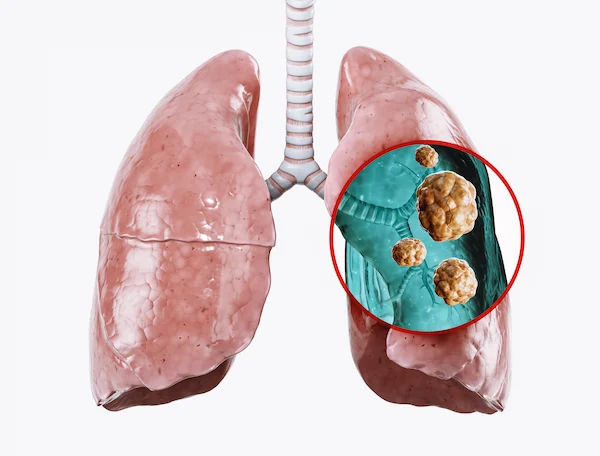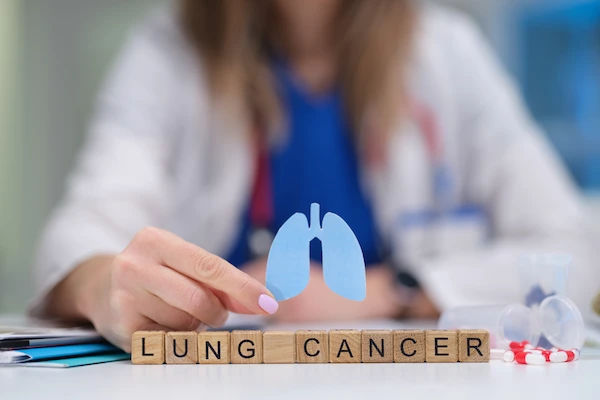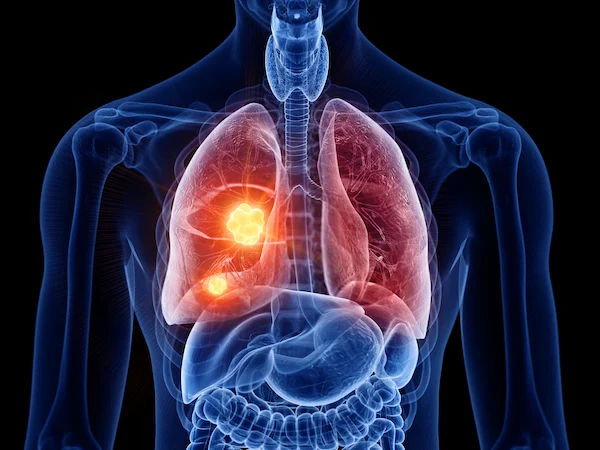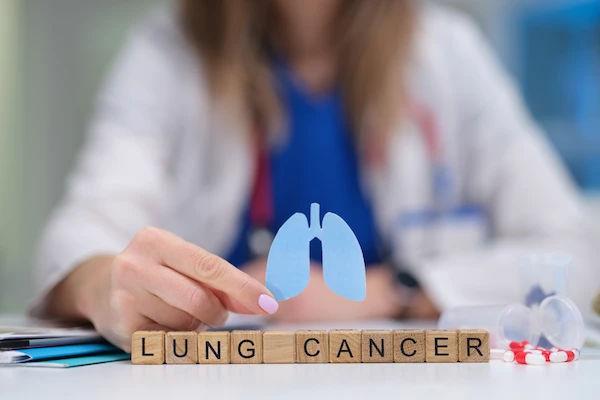Understanding Different Types of Lung Cancer
Explore the different types of lung cancer, including symptoms, causes, and treatment options. Learn how early diagnosis and lifestyle changes can support recovery.


Lung cancer is a serious health condition that affects millions of people worldwide. If you or a loved one has been diagnosed with lung cancer, it’s natural to feel overwhelmed. Understanding the different types of lung cancer, their symptoms, causes, and treatment options can help you make informed decisions about your health. This article aims to provide clear and compassionate information to guide you through this journey.
What Is Lung Cancer?
Lung cancer occurs when abnormal cells grow uncontrollably in the lungs, forming tumours that can interfere with lung function. These cancerous cells can also spread (metastasize) to other parts of the body if not treated early.
Types of Lung Cancer
There are two main types of lung cancer:
1. Non-Small Cell Lung Cancer (NSCLC)
NSCLC is the most common type, accounting for about 80-85% of all lung cancer cases. It grows more slowly than small cell lung cancer and has three main subtypes:
- Adenocarcinoma – Usually found in the outer parts of the lungs and is common in non-smokers.
- Squamous Cell Carcinoma – Often develops in the central airways and is linked to smoking.
- Large Cell Carcinoma – A less common but fast-growing type that can appear anywhere in the lungs.
2. Small Cell Lung Cancer (SCLC)
- SCLC is less common (about 10-15% of cases) but grows and spreads more aggressively. It is strongly associated with smoking and often requires immediate treatment.
Symptoms of Lung Cancer
Early-stage lung cancer may not show noticeable symptoms, but as it progresses, you may experience:
- Persistent cough that worsens over time
- Chest pain that worsens with deep breathing or coughing
- Shortness of breath
- Coughing up blood
- Unexplained weight loss
- Fatigue
- Recurring infections like bronchitis or pneumonia
If you experience any of these symptoms, especially if you are a smoker or have a family history of lung cancer, consult a doctor promptly.
Consult a Top General Practitioner for the best advice
Causes and Risk Factors
While smoking is the leading cause of lung cancer, non-smokers can also develop it due to:
- Secondhand smoke – Breathing in smoke from others.
- Radon gas exposure – A naturally occurring radioactive gas found in homes.
- Air pollution – Long-term exposure to polluted air.
- Occupational hazards – Exposure to asbestos, arsenic, or diesel fumes.
- Family history – Genetic factors may increase risk.
How Lung Cancer Affects Your Health
Lung cancer can impact your overall health in several ways:
- Breathing difficulties – Tumours can block airways, making it hard to breathe.
- Pain – As cancer spreads, it may cause pain in the chest, bones, or other organs.
- Fatigue and weakness – Cancer and treatments can drain energy levels.
- Emotional stress – A diagnosis can lead to anxiety or depression.
Diagnosis and Treatment
If lung cancer is suspected, your doctor may recommend:
- Imaging tests (X-rays, CT scans) to detect tumours.
- Biopsy – Removing a small tissue sample for testing.
- Blood tests to check overall health.
Treatment Options
Treatment depends on the type and stage of cancer but may include:
- Surgery – Removing the tumour if detected early.
- Radiation therapy – Using high-energy rays to kill cancer cells.
- Chemotherapy – Drugs to destroy cancer cells.
- Immunotherapy – Boosting the immune system to fight cancer.
- Targeted therapy – Drugs that attack specific cancer cell mutations.
Lifestyle and Management Tips
While treatment is essential, certain lifestyle changes can help improve quality of life:
- Quit smoking – The most crucial step to slow cancer progression.
- Eat a balanced diet – Focus on fruits, vegetables, and lean proteins to strengthen immunity.
- Stay active – Gentle exercises like walking can improve lung function.
- Manage stress – Meditation, support groups, or counselling can help.
- Follow-up care – Regular check-ups are vital to monitor recovery.
When to Seek Help?
If you or someone you know has persistent symptoms or risk factors for lung cancer, don’t delay medical advice. Early detection can significantly improve outcomes.
Book a Consultation with Apollo 24|7
If you need expert guidance or diagnostic tests, Apollo 24|7 offers convenient online consultations and lab services. You can schedule an appointment with a specialist to discuss your concerns and get personalised care.
Final Thoughts
A lung cancer diagnosis can be frightening, but understanding the disease empowers you to take control of your health. With advancements in treatment and supportive care, many patients lead fulfilling lives. Stay informed, seek medical advice early, and take steps toward a healthier lifestyle.
Consult a Top General Practitioner for the best advice
Consult a Top General Practitioner for the best advice
Dr. Gaddam Manoj
General Practitioner
1 Years • MBBS
Hyderabad
Aaradhya clinic, Hyderabad

Dr Suseela
General Physician
5 Years • MBBS
Bengaluru
Apollo Medical Center, Marathahalli, Bengaluru
Dr. Sahana B
General Practitioner
3 Years • MBBS
Koppal
Khushi multi-speciality hospital, Koppal
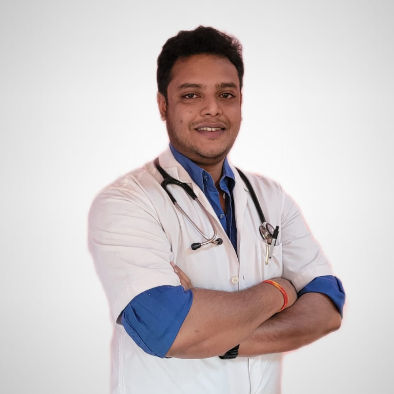
Dr. Mainak Baksi
General Practitioner
13 Years • MBBS , MD (MPH)
Howrah
Mainak Baksi Clinic, Howrah
(50+ Patients)
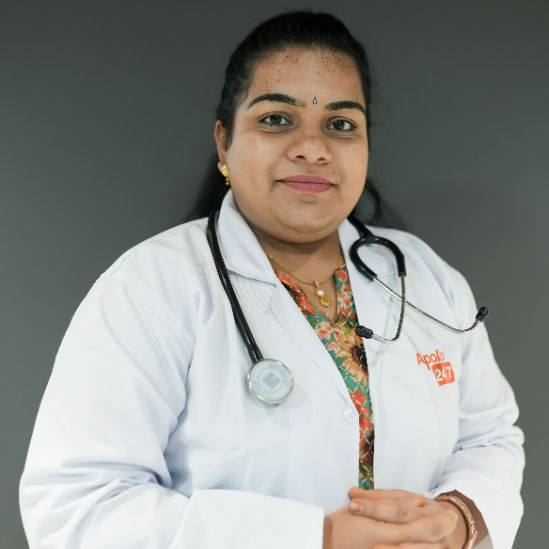
Dr. Siri Nallapu
General Practitioner
5 Years • MBBS
Hyderabad
Apollo 24|7 Clinic, Hyderabad
Consult a Top General Practitioner for the best advice
Dr. Gaddam Manoj
General Practitioner
1 Years • MBBS
Hyderabad
Aaradhya clinic, Hyderabad

Dr Suseela
General Physician
5 Years • MBBS
Bengaluru
Apollo Medical Center, Marathahalli, Bengaluru
Dr. Sahana B
General Practitioner
3 Years • MBBS
Koppal
Khushi multi-speciality hospital, Koppal

Dr. Mainak Baksi
General Practitioner
13 Years • MBBS , MD (MPH)
Howrah
Mainak Baksi Clinic, Howrah
(50+ Patients)

Dr. Siri Nallapu
General Practitioner
5 Years • MBBS
Hyderabad
Apollo 24|7 Clinic, Hyderabad
